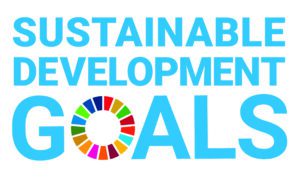 Industry events are setting the standard for sustainability. Two pros weigh in with advice on how it’s done.
Industry events are setting the standard for sustainability. Two pros weigh in with advice on how it’s done.
Arriving to my room for Incentive Canada 2023, I was impressed by a personal note attached to my gift, a lovely rain jacket made with recycled materials. Should I not have a use for the jacket at home, I was asked to return it at the end of the meeting for recycling or reuse.
This was one of many seemingly small initiatives at Incentive Canada that added up to a sustainable, carbon neutral event. “Our experience with Incentive Canada underscored how even the smallest steps can make a big difference when it comes to sustainability and putting on a carbon neutral event,” says Jennifer Attersall, acting senior director, Business Events, Destination Canada. “Each and every one of us, from our event organizers, to our staff and our attendees, played a role in driving the program’s sustainability forward. Whether that was by adopting eco-friendly practices like opting out of housekeeping, walking, or engaging with local suppliers and vendors, every action counts. We received really positive feedback around this collective approach, and the emphasis on showing attendees how their actions can help to move the needle.” When it comes to site selection, Attersall believes that sustainability is “well on its way to becoming a decision driver.”
Destination Canada is one of many industry organizations with a sustainability roadmap. IMEX, for example, was an early signatory to the Net Zero Carbon Events Pledge, and intends to reach net zero by 2030, ahead of the 2050 target set out by the Paris Agreement. IMEX America has worked with MeetGreen for over a decade to measure and report on the show’s sustainability efforts.

Trends and Tips From IRF President Stephanie Harris
I caught up with Stephanie Harris, president of the Incentive Research Foundation and panelist at Incentive Canada, to get the skinny on sustainable incentives.
Prevue: Does IRF research show any sustainability trends for incentive programs?
Harris: Poll results in the 2022 IRF Social Responsibility & Sustainability Report suggest that positive change, though only just emerging, could be gaining momentum. Almost 80 percent of respondents reported at least some pressure from clients to provide more sustainable options in meetings, events and incentive travel venues and transport. Sustainability is also included in the recent Incentive Travel Index (that will be released fully in October), with 50 percent of respondents indicating that the reputation of the destination for their incentives relative to ESG (Environmental, Social, and Governance) considerations was of increasing importance.
Prevue: What were your sustainability takeaways from Incentive Canada?
Harris: Incentive Canada embodied sustainability by committing to being a carbon neutral event. I appreciated the intense focus on local—from local food, to supporting local businesses, to educating the attendees about the local way of life. I believe this program set a solid roadmap for other programs. From the early communications, they laid out the sustainability efforts that were part of the program, then systematically followed them throughout the event. I found attendees were more conscious of their own behaviors as a result.
Prevue: How does the IRF Invitational incorporate sustainability?
Harris: We always look at incorporating elements of sustainability into our program. For example, we give people an option whether they want to receive mailed pre-trip materials, take advantage of digital signage wherever possible, and incorporate elements of give back to support the local and global community. At recent Invitationals we have incorporated Fill It Forward, The Above and Beyond Foundation, and facilitated donations to World Central Kitchen. We are working with our 2024 partners to determine how we can showcase local culture, local foods and support local artists throughout our program.
 Prevue: Any other advice on how to plan sustainable events?
Prevue: Any other advice on how to plan sustainable events?
Harris: Real opportunity exists when planners consider all 17 of the United Nations Sustainable Development Goals.
Prevue: What do you think the future holds for sustainable meetings and incentives?
Harris: The industry has a long way to go relative to sustainability, but it is fantastic to see more organizations indicating that ESG considerations are influencing destination choice. That is a good indicator that we’ll see more concrete action around sustainability in the years to come. And, over the next several years, I believe we will see corporations begin to make more decisions based on sustainability as they look to achieve their own net zero 2050 goals.
For more on implementing a sustainability roadmap, sign up for Prevue’s webinar, Building Sustainability into Business Events. If you can’t make it, you’ll receive a link to the recording.
You May Also Be Interested In…
Incentive Canada Raises the Bar
The Road to Net Zero: Best Practices
Is Your Event Certifiably Sustainable?










